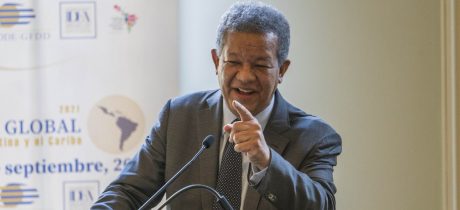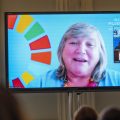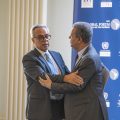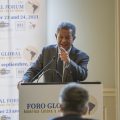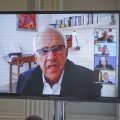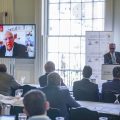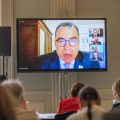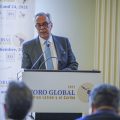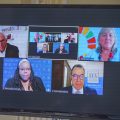NEW YORK. – The third Global Forum Latin America and the Caribbean concluded with an urgent call for regional integration and global solidarity as ways to successfully address the region’s multiple challenges, seriously aggravated by the Covid-19 pandemic.
Speaking at the Forum’s closing panel, former Colombian President Ernesto Samper said the region urgently needs to adopt a new development model that is capable of addressing the challenges imposed by the crisis.
“We must make a heroic effort of integration” Samper proclaimed, after pointing out that if the region were integrated, it could better negotiate the acquisition of vaccines against the Covid-19 virus.
Likewise, the politician analyzed the current panorama of the region and affirmed that social problems have left a democracy “in airplane mode,” which must be rescued as soon as possible.
Kevin Casas-Zamora, Secretary General of IDEA International, said that the pandemic has revealed that the Latin America and Caribbean of 2021 constitutes a region where the democratic project “is sinking.”
Regarding this concept, the expert warned that the governments and political leaderships of Latin America and the Caribbean are falling into the hands of warlords, inexperienced individuals and businessmen with ambitions of power, an element that must be paid attention to before it becomes a stronger force.
Meanwhile María Noel Vaeza, UN Women Regional Director for the Americas and the Caribbean, condemned the lack of equity between men and women and called for equality for women in political activities.
Vaeza pointed out that in Latin America and the Caribbean political organizations are mostly led by men, which makes it very difficult for women to access management positions in State institutions and in decision-making processes.
“Parity, not democratic quota,” Vaeza said, adding that the pandemic has highlighted the issue of care and the importance of the female role in fundamental sectors of society.
Meanwhile, Dianne Quarless, Head of the Sub-Regional Office for the Caribbean of the Economic Commission for Latin America and the Caribbean (ECLAC), highlighted the interrelationship between climate change and the issue of health.
She also highlighted the harmful impact the Covid-19 pandemic has had on the tourism and other economic sectors, provoking the loss of employment and the closure of many means of production. This situation has brought about uncertainty in the most affected sectors.
In his closing speech at the Forum, former President Leonel Fernández acknowledged the multiple problems facing the Latin American and Caribbean regions. However, he said he felt optimistic about the future, given that major crises generate great opportunities.
In that sense, the former President reiterated his demand for a global effort to solve the problems generated or aggravated by the pandemic, as well as other challenges of international scope.
“There is no local or regional solution to a global problem,” said Fernández, after affirming that the region and the world need fresh resources to face a crisis that has multiple dimensions.
The former Dominican President regretted that the pandemic has impacted the region precisely when it is most vulnerable, making it urgent to work on the issue of integration and international solidarity.
Expanding on his optimism for the future, Fernández said the rivalry between China and the United States creates an opportunity for Latin America and the Caribbean to expand its relevance on a global scale.
In this regard, he explained that in its interest to curb the Silk Road promoted by China, the United States could increase its investment in the Dominican Republic and other countries in the region.
Regarding the current political situation in the hemisphere, Fernández advocated that all possible efforts be directed in order to preserve democratic stability, social peace and respect for human rights.
“Once you access power democratically, you have to govern democratically,” Fernández warned.
The 2021 edition of the Global Forum on Latin America and the Caribbean began on Thursday, September 23, and was organized by the Global Foundation for Democracy and Development (Funglode) and its sister institution in the United States, the Global Foundation for Democracy and Development (GFDD).
The event had the collaboration of the International Institute for Democracy and Electoral Assistance (IDEA International), the Economic Commission for Latin America and the Caribbean (ECLAC), and the Institute of Latin American Studies of Columbia University (ILAS).
All Forum publications and videos are available on the official website:
Global Forum Latin America and the Caribbean: www.globalforumlac.org.

